Thai GL dramas have captured hearts worldwide by showing sapphic love once invisible. While this representation is powerful, it carries weight because how these stories show love and identity shapes how we see ourselves and others.
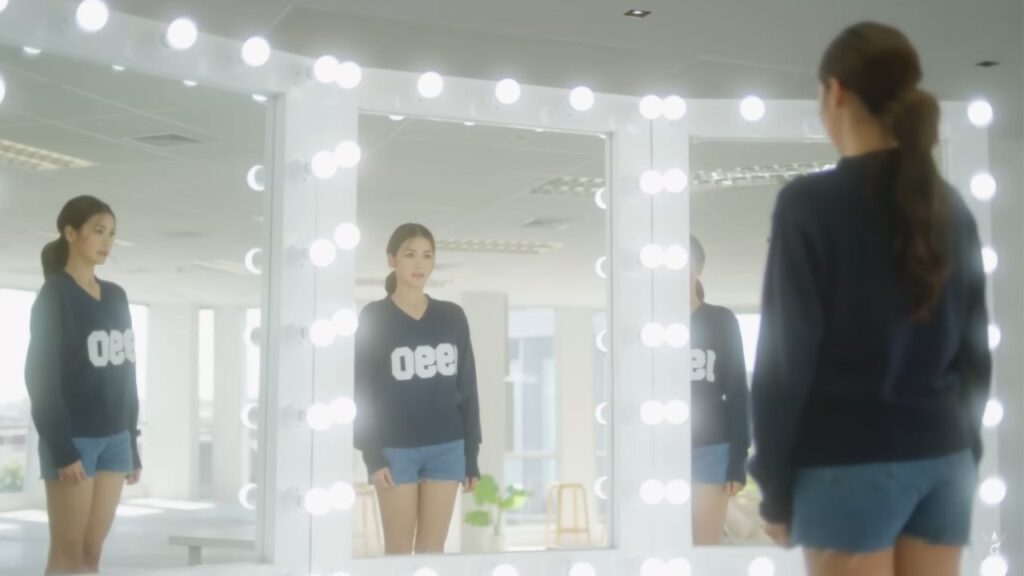
There is something powerful about watching two women fall in love on screen. For many queer viewers, Thai GL Dramas feel like a breakthrough. These stories were rare not long ago. Now, they are here and changing lives.
Seeing sapphic couples filled with tenderness, tension, and messy emotions brings real joy. It feels like progress. It feels like care.
And sometimes, it is. But joy is not always simple.
Thai GL Dramas are beautiful. The actresses shine. The chemistry works. The visuals feel soft and romantic. These shows are easy to love. But beneath the beauty, something feels off. Certain patterns keep repeating. Some plots leave us not just entertained but also confused, drained, or disappointed.
So what happens when the stories we love forget to love us back?
This post is not about disliking Thai GL Dramas. It is because they matter that we must look closer. As the genre grows, we need better questions. What do these stories say about queer love? Who do they serve? How do they leave us feeling?
There is real beauty here. But there is also pressure, pain, and patterns we cannot ignore. This article explores the side we rarely name. The stereotypes. The toxic tropes. The unrealistic standards. And the emotional toll they carry.
Because queer love deserves more than just pretty moments. It deserves honesty too.

Table of Contents
- Pretty Hurts: Unrealistic Beauty and Body Image
- Drama for Drama’s Sake: Toxic Tropes on Repeat
- Consent, or the Lack of It: A Slippery Slope
- Drunk Love: When Intimacy Gets Questionable
- Mirror, Mirror: The Identity Crisis of GL Fandoms
- Same Story, Different Faces: A Stagnant Industry?
- Manufactured Love: The Exploitation Behind Fanservice
- What We’re Not Saying but Should
Pretty Hurts: Unrealistic Beauty and Body Image
From the very first scene, Thai GL Dramas often show a world full of flawless faces and perfect bodies. Everyone looks like a model. Soft lighting and filters hide even the smallest flaws. While this looks nice, it quietly sends a narrow message about beauty. It shows only one kind of look that feels hard to relate to and even harder to reach.
For queer viewers, especially young women and gender diverse people, these beauty rules can be harmful. When sapphic love only happens between thin, fair-skinned, perfectly styled characters, it says only certain bodies and people deserve love. The happiness of seeing queer stories mixes with pressure to “fit in.”
This is not just about representation, but about real life. Where are the fat girls, dark-skinned girls, older women, or androgynous and “masculine sapphics”? Where are the people with curly hair, visible scars, or everyday queer bodies? Their absence speaks loudly. It feels like queerness must be neat and easy to accept.
This lack of diversity pushes many viewers away. It also limits the emotions these stories could show. Beauty turns into a costume, and characters risk being only about looks. It is hard to feel seen when the image feels fake.
To truly honor sapphic love, Thai GL Dramas must widen what beauty means. Real representation shows queer people as they really are, with all their differences and imperfections. That is the true beauty.
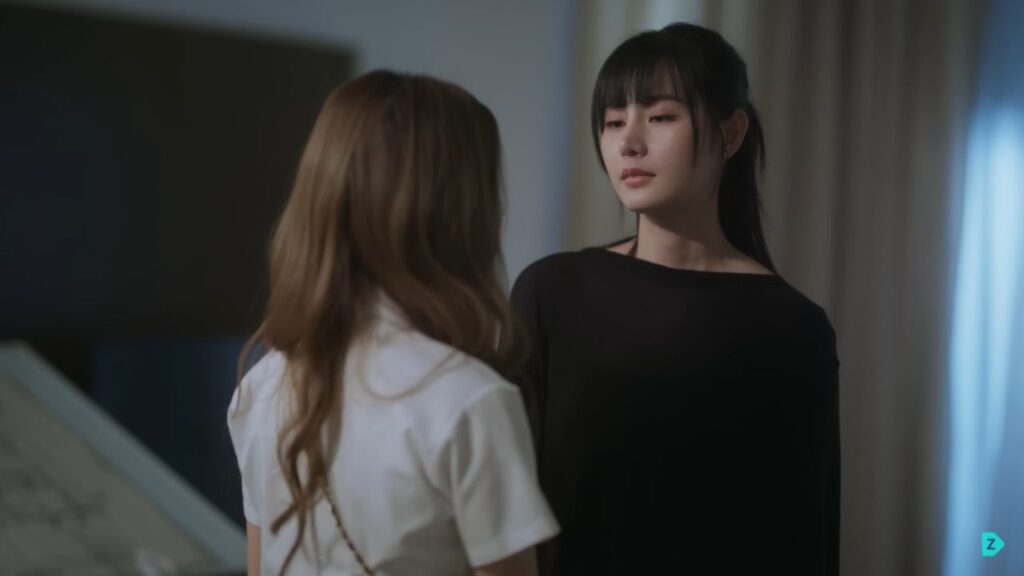
Drama for Drama’s Sake: Toxic Tropes on Repeat
Conflict is a natural part of storytelling. But many Thai GL Dramas often depend too much on miscommunication. Instead of showing deep emotional tension, they rely on misunderstandings that a simple, honest talk could solve. This doesn’t build suspense. It avoids it and weakens the emotional impact.
The same types of conflict appear again and again. We see jealousy without reason, lies that have no real consequences, and characters who shut each other out with silence. These moments can be fun at first, but over time, they replace meaningful character growth.
Some shows go even further by romanticizing harmful behavior. Possessiveness is shown as passion. Shouting is mistaken for emotional depth. Even physical aggression is excused as part of an intense relationship. This creates a harmful message where pain becomes a sign of love, and unhealthy dynamics seem normal.
When many GL couples go through these same patterns, it sends a quiet message. It suggests that sapphic love is always messy or unsafe. This can influence viewers, especially younger ones, to accept these patterns as part of real relationships. But this is not the kind of representation we need.
Drama has its place in storytelling. Still, there is a big difference between meaningful conflict and lazy writing. When each episode relies on recycled tension instead of real emotional growth, the story loses its power. It becomes harder to care about the characters or believe in their love.
We don’t need perfect love stories. What we need are characters who feel real, people who face challenges with honesty and care. Thai GL Dramas have the power to show this. Queer stories deserve more than just surface drama. They deserve depth, truth, and growth we can believe in.
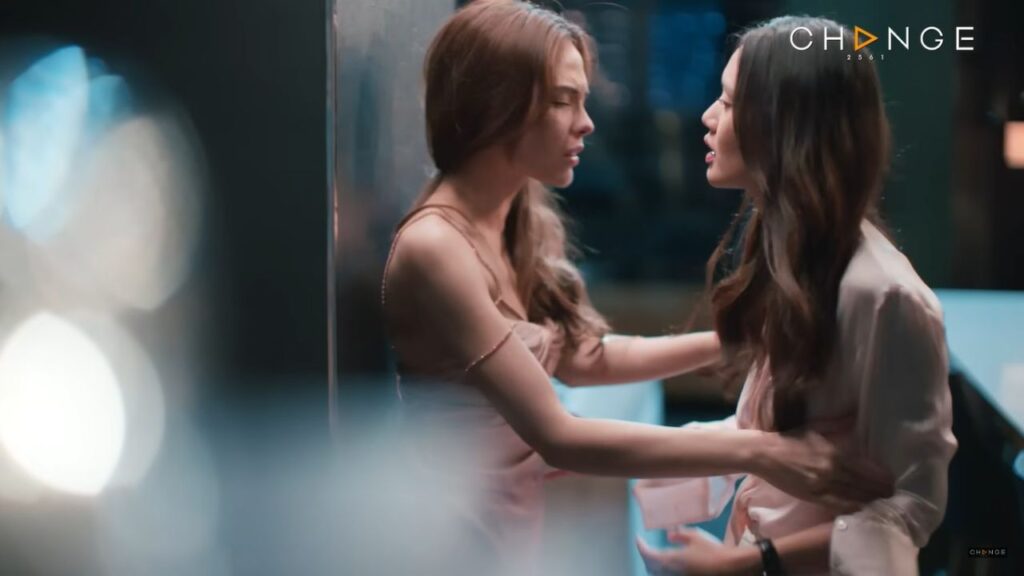
Consent, or the Lack of It: A Slippery Slope
In many Thai GL dramas, you might see a character being kissed without consent, pushed against a wall, or even slapped. These moments often play out with soft lighting and dramatic music, making them feel like romantic or passionate turning points. But what happens when passion crosses into coercion?
The line between desire and control can get blurry when boundaries are ignored. Surprise kisses, forced intimacy, and emotional manipulation are often shown as signs of strong love or sexual tension.
But for many viewers, especially those who have faced real trauma, these scenes are not exciting they are triggering. What looks like romance can reflect real harm.
When these moments happen over and over without any critique or consequences, Thai GL dramas risk making a harmful idea normal.
They suggest that aggressive pursuit is flattering, that pushing past “no” is part of the game, and that discomfort leads to pleasure. This is not just lazy writing. It sends a dangerous message, especially to young viewers who look to these stories for examples of queer love.
When sapphic love is shown as something to be taken instead of shared, it twists the true meaning of queer relationships: trust, respect, and safety. These shows do more than entertain. They shape how people think about love. If we aren’t careful, they will keep teaching that love means pushing limits instead of honoring them.
Real romance requires real consent. Anything less is not love. It is power pretending to be passion.
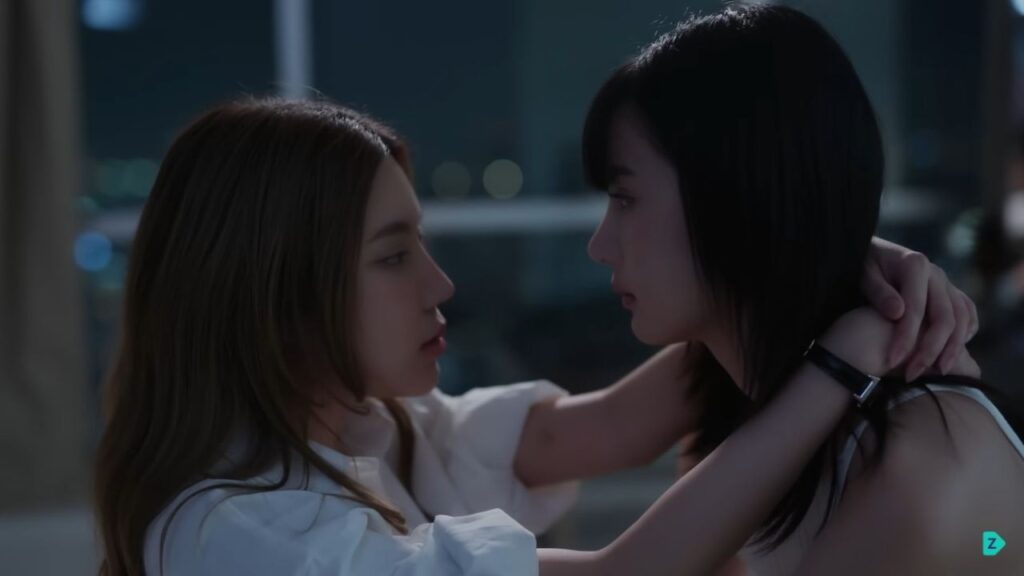
Drunk Love: When Intimacy Gets Questionable
One common scene in Thai GL dramas shows a tipsy or drunk girl leaning in, leading to a kiss or more. The sober character hesitates for a moment, then gives in, and we are meant to cheer for the spark. But for many viewers, this does not feel like romance. It feels like crossing a line.
When alcohol comes into play, the situation becomes unclear. Using impaired judgment as a plot device is not just a shortcut in storytelling. It raises serious ethical questions.
These scenes often suggest that alcohol reveals true feelings or lowers defenses just enough to unlock hidden desire. But there is a big difference between shyness fading away and a kiss that only happens because one person is vulnerable.
It is concerning how often consent is only implied and not clearly shown. Drunk confessions and sudden intimacy make it hard to tell where fantasy ends and coercion begins.
This is especially true when the person who is drunk cannot clearly say yes or no. While some might see these moments as harmless, others find them deeply upsetting, especially if they have faced unwanted advances when intoxicated.
When Thai GL dramas keep linking drinking with falling in love, they send the wrong message. They suggest that queer love needs a push from alcohol to become real. They imply that queer feelings are not chosen clearly or soberly. This idea is not just wrong; it is harmful.
Real intimacy should start with both people fully aware and willing. While fiction can bend reality, it should never romanticize situations where one person cannot truly consent. Viewers deserve better stories. They deserve love that begins with clarity and respect, not confusion and haze.

Mirror, Mirror: The Identity Crisis of GL Fandoms
For many fans, Thai GL dramas become more than just shows. They turn into entire worlds. Viewers form strong connections with the couples. They ship them hard and follow every move of their favorite actors online. What starts as fun can quickly turn into daily stalking. This blurs the line between fiction and reality.
This intense fandom can isolate people from real life. When fans spend so much time on shipping wars, reaction videos, and scrolling social media, they have less time for other interests or relationships. The fantasy becomes a safe bubble. Leaving it can feel scary.
There is also an emotional cost. After watching perfect love stories and flawless characters, many fans face a hard truth. Real life does not offer perfect moments or picture-perfect partners. This can make loneliness, self-doubt, and feeling disconnected even worse.
This cycle of obsession, isolation, and emotional crashes raises important questions. How do fandoms shape who we are? Are we seeking real connection or just escaping into carefully crafted illusions? When does loving fictional couples hurt the love we have for ourselves?
Fans deserve to enjoy these stories. But they should not lose their mental health or sense of self. It is time to think about what these dramas show us. Not just about queer culture but about everyone watching.

Same Story, Different Faces: A Stagnant Industry?
Thai GL dramas often feel like different versions of the same story. Many shows come from a few popular authors like Chao Planoy who use the same tropes and formulas over and over. This makes the genre predictable and leaves viewers wanting something new and deeper.
One major problem is the fear of emotional maturity. Instead of showing complex and healthy relationships, the scripts rely on childish fights, misunderstandings, and over-the-top drama. It seems like producers avoid true emotional growth because it feels too risky.
This focus on cheap drama keeps people watching but limits what the genre can do. There is so much potential for richer stories, diverse characters, and real talks about identity and love. But instead, we see endless loops of jealousy, miscommunication, and heartbreak.
The industry seems stuck. It chooses safe formulas that get views instead of stories that challenge and inspire. This makes fans frustrated and misses a chance to move queer stories forward.
Creators need to take more risks. They should write sapphic stories with depth, honesty, and real emotion. Fans deserve to see all sides of queer life, not just melodrama dressed as romance.

Manufactured Love: The Exploitation Behind Fanservice
In many Thai GL dramas, the line between real affection and marketing can become unclear. The actresses are not just actors; they often become part of a planned public relations machine that boosts the “ships” fans love.
This fanservice turns relationships into products that get sold. Sometimes this comes at the cost of the actors’ privacy and well-being. What starts as on-screen chemistry can quickly turn into public pressure to keep a perfect image.
Fans might feel close to these couples, but it raises a tough question: how much of this love is real and how much is created for attention? These fake relationships can trap both viewers and actors in a cycle of high expectations and stress.
This situation is similar to what happens in the K-pop world. There, idols have busy schedules and strict control over their image. For many actresses in Thai GL dramas, the pressure to always be “on” can be very tiring and even harmful. For fans, the constant focus on perfect romance can feel overwhelming.
It is important to see the machinery behind the scenes, not just enjoy the fantasy. Knowing the cost of fanservice helps us respect the actors as real people, beyond their roles or ships.
The big question is: can Thai GL dramas find a better balance between good storytelling, fandom, and respect for the people who bring these stories to life?

What We’re Not Saying but Should
Thai GL Dramas often get praise for queer representation. Yet beneath the surface, they sometimes reflect society’s limits more than true freedom. These shows work within cultural and business rules that hold them back.
Yes, GL series bring sapphic love into the spotlight. But remember, they are also businesses shaped by markets, censorship, and tradition. This creates a gap between real stories and safe, profitable ones.
Fans want richer stories, healthier relationships, and real diversity. But asking for more feels tricky. How do we demand better while respecting the importance of these shows? How do we balance thanks with honest critique?
This matters because representation affects real lives and identities. Holding these dramas accountable doesn’t reduce their value; it deepens the conversation about queer media.
We need to ask harder questions and expect more from creators and networks. Only by seeing both strengths and flaws can we support a future where Thai GL Dramas truly break new ground, not just entertain.
These dramas bring joy, hope, and vital visibility to queer women worldwide. They open doors and celebrate sapphic love.
But with that joy comes responsibility. We owe it to ourselves and the community to seek better stories and deeper representation.
Watch Thai GL Dramas with love and with clear eyes. Celebrate the wins but stay ready to question and reflect.
💬 What tropes or patterns in Thai GL Dramas make you uncomfortable? Let’s discuss in comments or on social media.
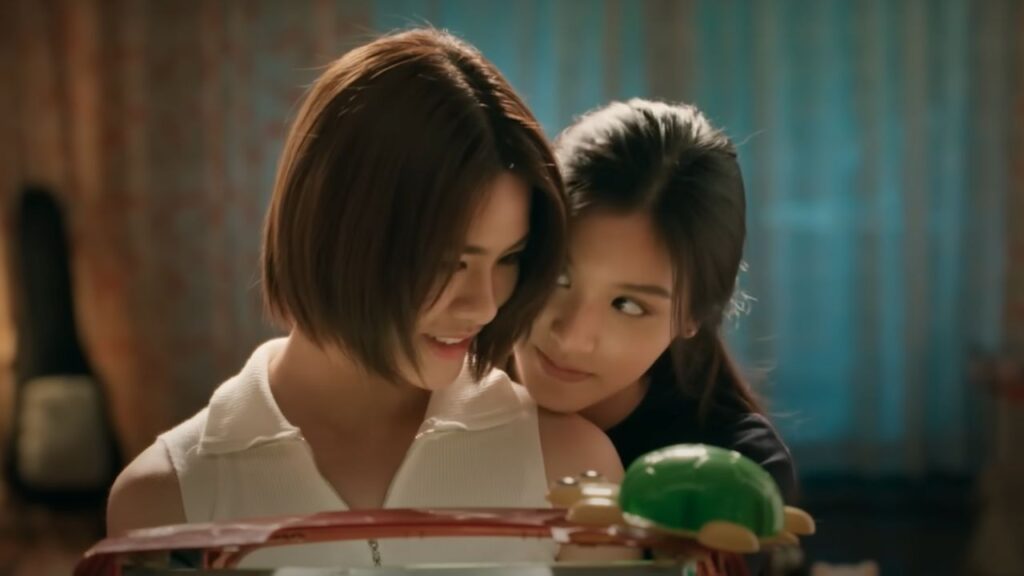
Featured image: Promotional still courtesy of Miss Grand Thailand.



